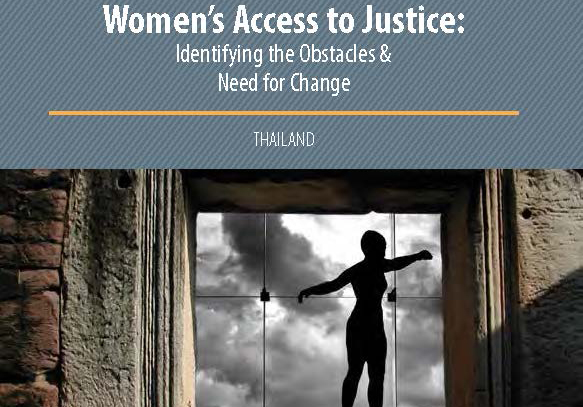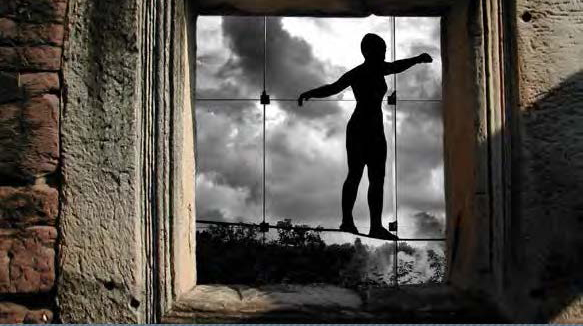 In a new report released today, the ICJ and Justice for Peace Foundation (JPF) call for a series of changes in law, practice, approach and behaviour to address the justice needs of women across Thailand.
In a new report released today, the ICJ and Justice for Peace Foundation (JPF) call for a series of changes in law, practice, approach and behaviour to address the justice needs of women across Thailand.
Despite certain legislative and structural changes, significant barriers between women and justice persist, the report Women’s Access to Justice: Identifying the Obstacles & Need for Change shows. It underscores among other issues the need to further improve domestic violence and rape laws and procedures.
“Although there have been some improvements over the last decade, the reality is that for large numbers of women throughout the country justice remains an illusive prospect,” said Sam Zarifi, ICJ’s Asia-Pacific Director.
Significant government action is needed beyond law-reform, the report says, underlining that legal developments are meaningless unless justice officials adjust their approach and behaviour, and enforcement of the law is improved.
“Legislative changes alone are not enough,” said Leah Hoctor, ICJ Legal Advisor on Women’s Human Rights. “The goal must be to bring about significant positive shifts in the day-to-day experiences of women who seek help from the police and the courts. Officials should stop encouraging women to sort out domestic violence problems at home or to settle sexual assault cases out of court.”
The report, which follows a 12-month research and consultation process, also emphasizes that ongoing government efforts to enact new gender-equality legislation must comply with international obligations. It says for example that certain controversial provisions in draft versions of the equality legislation, such as those introducing religious exceptions to prohibitions on discrimination, would undermine Thailand’s international human rights commitments if enacted into law.
“The new gender-equality bill must strengthen non-discrimination protection and make avenues to redress available to women in Thailand,” Zarifi added. “The Government must guard against including regressive provisions in the bill which will undercut progress made thus far.”
In addition, the report highlights that certain groups of women in Thailand, such as migrant women, displaced women, sex workers and women from ethnic minorities, encounter additional barriers to justice. It urges the Thai Government to address and respond to the particular forms of exclusion these women face.
For more information:
Sam Zarifi, ICJ Asia-Pacific Director, Bangkok, m: +66 807 819 002; e: sam.zarifi(at)icj.org
Leah Hoctor, ICJ Legal Advisor on Women’s Human Rights, Geneva, m: +41 76 5623830; e: leah.hoctor(at)icj.org
Thailand Women’s Access to Justice-Press Release 2012 (download the press release, in Thai)
Thailand Women’s Access to Justice-Report 2012 (download the report, in English)
Thailand Women’s Access to Justice-Report 2012 (download the report, in Thai)
Remarks by Hon. Elizabeth Evatt AC – Thailand – Report Launch – 2012 (download the speech, in English)
NOTE:
- The Justice for Peace Foundation (JPF) was founded in Thailand in June 2006 as a network of human rights and peace activists to strengthen their non-violent efforts to protect human rights, promote access to justice and end impunity. JPF engages in human rights monitoring and advocacy while encouraging grass roots activism and supporting victims of human rights violation in their fight for justice. JPF believes that respect for human rights and rule of law is a necessary measure to reduce violent conflict and to build peace in conflict areas. JPF believes that the main catalysts for change are communities themselves and therefore focuses much of its energy and resources on community empowerment.





